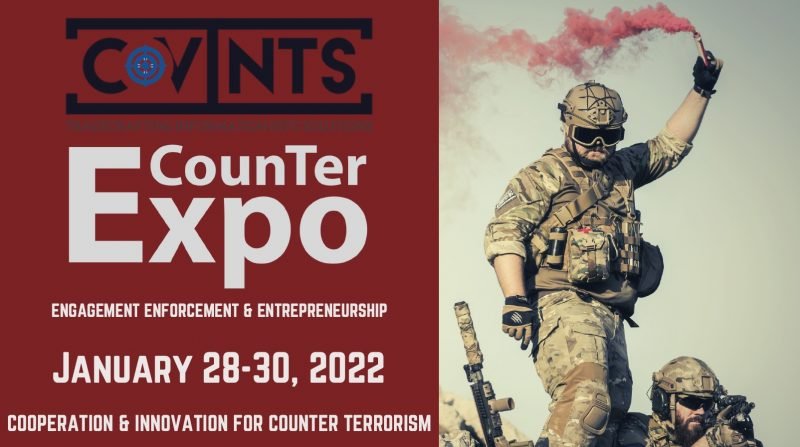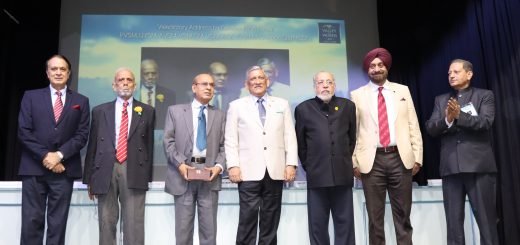[Event] COUNTER EXPO 2022: Technology solutions in counter-terrorism

COVINTS in its panel discussion in collaboration with National Liberal Club, the United Kingdom had a discourse on “Technology Solutions in Counter-Terrorism”.
This session included Professor Sascha-Dominik Dov Bachmann and Krishna Sashank Tademeti as esteemed Speakers and Noel Hadjimichael as the Moderator for the Panel Discussion. The session was essentially focusing on deploying the use of technology in countering terrorism.
The session started with the remarks given by Mr Hadjimichael who highlighted the involvement of three countries sharing heritage, common beliefs and common goals to fight terrorism. Eventually, the discussion was commenced by Mr Tademeti expressing the need to apprehend the role of technology in propagating terror and how does the other side utilize the technology in advancing the terror attacks. He further mentioned that the approach is to propagate the message through media to the public at large and use technology to deliver the payload. He believes that conventional warfare is getting a facelift. Previously geographical territory or cities were at the threat in terms of terror attacks but he said, “today it is virtually possible for people sitting thousands of miles away to affect the territory without being near to the vicinity”.
Mr Tademeti shared his views on the threats with respect to warfare strategies. He enunciated that the biggest threat is the utility of UAV and Drone technology which is ubiquitously available and thus terrorist can easily get their hand over it to gather information, intel and deliver payloads.
Professor Bachmann began with a remark that as soon as nation-states are evolving in terms of technology, terrorists are observing that and copying it too. Furthermore, he expressed his concern where emotional, moral and legal consideration comes in is the information warfare domain which is becoming the biggest threat to deal with. He mentioned that use of the information is what allows terrorist groups to show this world that they are much more powerful than we think. He said that the events of 9/11 have become the moment in our human perception of terrorism.
Lastly, he touched upon some solutions that we as a global society can implement like entering into bi-national agreements or International conventions to keep a check on malicious cyber-attacks. He said that there has to be an interaction between institutional and practitioner perspectives. We need to work more on the boundaries between private industries, government, civil societies and the terror groups because the terror group comes from the society as they are driven by ideologies, political traditions and tribalism. However, he firmly believes that we don’t live in a segmented global environment but we live in a very close interrelated environment with very fast information warfare opportunities for both good guys and bad people to use the technologies.
Mr Tademeti categorically stated that these are organizations and people who are highly organized. They are people who have regular office schedules like regular lunch breaks, 9-5 jobs. It has a similar structure to corporate settings.
He emphasized that now since the threat is that diverse so it is vital to bring all people on the same page in terms of defending.
Mr Bachmann called out the need to be a confluence of ideas and thoughts from all the sectors to reach a common goal. We need a holistic approach where government, academia, citizens, the executive needs to work together. He emphasized that the new generation can be brought into this by working on their incentives and training them by big cyber companies. He lastly mentioned the necessity to identify the stakeholders and then try to rope them in to deal with the threats. Additionally, he also stated that people need to be convinced that there is a need to defend the digital space. He asserted that you can only talk about the issue if you work towards awareness.
Mr Tademeti concluded the session by giving an answer to the question raised by someone in the audience about the threat caused by AI-driven drones. He answered the question stating that AI-driven drones have the capacity to make autonomous decisions in real-time. Previously you need somebody to manually control the flights and there was a certain range that the radiofrequency could transmit the signals. Today capturing the drone from the net and bringing them down involves a risk. Now experts are looking into safer hacking which is radiofrequency hacking (RF Hacking)


















